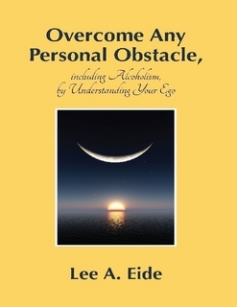Walter and Jesse complete drug deal with Tuco but not before they watch their drug customer kill one of his henchmen, No-Doze, for presuming to speak for him. Tuco makes Walter use CPR on No-Doze but it’s not enough to bring him back from the dead. Hank and the police find bodies of both No-Doze and Gonzo at the site of the drug deal. Walter mistakenly thinks Tuco killed Gonzo because he was afraid he might tell the police who killed him. What really happened is that Gonzo bumped into a pile of cars when he was hiding the corpse. A car fell on him and he bled to death from the injury.
Walter decides to make ricin (a deadly poison) and slip that into a batch of meth to kill Tuco instead of trying to shoot him (like Jesse was planning). In a line oozing with irony, Walter says, “That degenerate snorts anything he gets his hands.”
Walter finally returns home after his day of drug deals and ricin making and before he explains to his wife Skyler just what he’s been doing all day, he hides Jesse’s gun and the drug money in a diaper box. He’s about to answer her when his cellphone rings. It’s Jesse, who’s pulled up outside of Whites’ house. He moves out of ear shot of Skyler and asks Jesse why in the hell he’s outside their house as they have an agreement that if Jesse needs to contact Walter, it’s by phone only. Jesse tells Walter he has to come out to the car. He does but he doesn’t see Tuco in the back seat pointing a gun at Jesse until it’s too late. Tuco tells Walter to get in the car, which he does.
So ends “Seven Thirty-Seven”, a misleading name for the episode. It refers to the teaser at the beginning of the episode, which makes it seem like there was a meth-related explosion at the Whites’ house in a future episode. What it really shows is the aftermath of a mid-air collision caused partially by Jesse’s relationship and his role in the overdose of an air traffic controller’s daughter. One of the two airplanes involved in the mid-air collision was a 737. Whew, talk about a complex reason for naming an episode!
Anyway, this episode resonated with me because I can identify with Walter’s thought process during this show’s events. His reaction to thinking Tuco wanted to kill Jesse and himself could have been, “Okay, getting into the meth business to earn a ton of money in a short period of time to secure my family’s financial security after I’m dead from lung cancer, while it sounded like a good idea at the time, is really a bad idea. I’ve got a psychopathic business partner who killed a man in front of me and probably wants to kill me and my partner because we’re witnesses.”
So Walter could have told Hank that he knows who killed the two men that Hank and the cops found in the junkyard. The police arresting Tuco would have eliminated the threat to their lives. But Hank would have wanted to know how Walter knew about the killing and that would have required Walter to tell him he sold meth to Tuco. But he didn’t do it for a couple of reasons. Number One: His pride would have been hurt because he’d have to admit he sold a large amount of meth to Tuco. Hank would think less of Walter after learning what Walt had done. Number Two: He’d have to quit making meth after confessing to Hank that he’d sold Tuco meth, which would mean he’d have to accept the possibility that Hank would have to help out his family financially after Walter’s death.
Alcoholics and addicts, like Walter White, put themselves in bad situations because of their actions. But instead of making a wise decision in a bad situation, they make things worse by refusing to admit it was their own foolish, unenlightened actions that put them in the bad situation to begin with. For me, after I got my first DWI in 2003, I could have heeded a major warning sign from God/the universe at large: ALCOHOL AND YOU DO NOT MIX. GET HELP IMMEDIATELY. But my pride countered with something like, “Get lost. I got the whole alcohol-use thing under control. No problem, here.”
In my mind, I didn’t see myself as having a problem with alcohol. So I got a DWI, it was just a one-time deal, a case of poor judgment on my part. The cops just happened to nail me. The thing about people who get a DWI is that most of them have problems with alcohol because the vast majority of people who drink and drive don’t get caught. It’s just the way it works. There so many violators of the law that it’s impossible for the police to catch more than a small percentage of them. So if you get one or more DWI’s, the odds are you’ve driven drunk many times without getting pulled over. But that’s not the way most people who get DWI’s think. It’s funny and sad, and very revealing of the ego’s subtle, demonic ways, to hear alcoholics discuss their arrests with others. Almost every one of them has an explanation that makes it sound like it’s the cops’ fault for unfairly pulling them over or that it was a fluke they got pulled over in the first place or that their BAC (Blood Alcohol Content) measurement was inaccurate. I’ve yet to hear a drunk say, “You know what, I was drunk and I got what I deserved.”
Walter is similar in that he wouldn’t admit he was wrong to go into the meth business. Even ignoring the immorality of the activity, even if he isn’t arrested by the authorities it’s a dangerous business that jeopardizes himself, his partner Jesse and the family he claims to want to protect. But his sense of stubborn pride blinds him to the feedback from God and the world at large that what he’s doing is a bad idea. Practicing alcoholics and addicts have the strongest sense of pride of anyone on the planet because if their pride wasn’t so strong, they’d admit they have a problem with alcohol/drugs and they need the help of others. In “Overcome Any Personal Obstacle, Including Alcoholism, By Understanding Your Ego” – — 
http://www.lulu.com/spotlight/leewriter — I trace the root cause of all seven of The Seven Deadly Sins to an overly strong ego. Among the sins, the deadliest one is pride, the desire to be more important and attractive than everyone else (another definition is “excessive love of self in proportion to God). The opposite of pride is humility, which is the quality of being modest and respectful and in many philosophical traditions is connected with the transcendent unity of the universe or God. The humble person doesn’t necessarily believe they aren’t capable of doing great thing. Rather than they believe they can only do great things with the help of God and other people. A truly humble person has attained a sense of egolessness that allows them to view their own actions with perfect clarity. Conversely, the prideful person can’t the truth of their life because their pride is forever spinning and twisting the truth to make themselves appear better than they really are.
A Zen Buddhist master once said, “No ego, no problem.”





